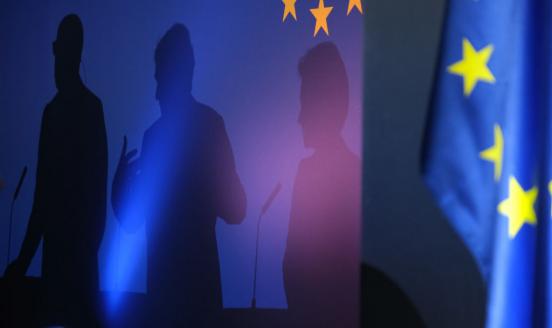- / Home
- / Publications
Higher aspirations: an agenda for reforming European universities
- Publishing date
- 03 June 2008

Since the introduction of the Shanghai ranking of the world‘s universities it has been clear that European universities are underperforming. This blueprint discusses the potential explanations and points at different reform priorities for higher education in Europe.
About the authors
-
Philippe Aghion
Philippe Aghion, a Non-resident Senior Fellow since September 2006 to 2016, was coordinating Bruegel's research project on higher education.
He is the Robert C. Waggoner Professor of Economics at Harvard University, where he started teaching Economics in 2000. Previously, he held positions at the European Bank for Reconstruction and Development (EBRD) and taught at the Massachusetts Institute of Technology (MIT), Nuffield College (Oxford), and University College London.
Philippe's research spans a broad array of fields including corporate finance, industrial organisation, political economy and macroeconomics. He is managing editor of the journal The Economics of Transition, which he launched in 1992.
-
André Sapir
André Sapir, a Belgian citizen, is a Senior fellow at Bruegel. He is also University Professor at the Université libre de Bruxelles (ULB) and Research fellow of the London-based Centre for Economic Policy Research.
Between 1990 and 2004, he worked for the European Commission, first as Economic Advisor to the Director-General for Economic and Financial Affairs, and then as Principal Economic Advisor to President Prodi, also heading his Economic Advisory Group. In 2004, he published 'An Agenda for a Growing Europe', a report to the president of the Commission by a group of independent experts that is known as the Sapir report. After leaving the Commission, he first served as External Member of President Barroso’s Economic Advisory Group and then as Member of the General Board (and Chair of the Advisory Scientific Committee) of the European Systemic Risk Board based at the European Central Bank in Frankfurt.
André has written extensively on European integration, international trade and globalisation. He holds a PhD in economics from the Johns Hopkins University in Baltimore, where he worked under the supervision of Béla Balassa. He was elected Member of the Academia Europaea and of the Royal Academy of Belgium for Science and the Arts.
-
Mathias Dewatripont
He holds a BA (1981) and MA (1982) in economics from ULB and a PhD in Economics from Harvard University (1986). His general research area is the theory of incentives and organizations. Since 1990, he has been Professor of Economics at ULB (part-time between 2011 and 2017). Between 1998 and 2011, he was part-time (7 weeks a year) Visiting Professor at MIT and Research Director of CEPR. Fellow of the Econometric Society, laureate of the 1998 Francqui Prize and of the 2003 Yrjo Jahnsson Prize for Economics, he was President of the EEA in 2005. He was member of the Scientific Council of the European Research Council between 2005 and 2012. He was Managing Editor of the Review of Economic Studies (1990-94) and one of the three Programme co-chairs of the 2000 World Congress of the Econometric Society. He is member of the Académie Royale De Belgique and Foreign Honorary Member of the American Academy of Arts and Science. He was co-Director of ECARES (1991-2002) and, upon the creation of the Solvay Brussels School of Economics and Management, he was its Vice-President (2008-2009), President (2009-2010) and then Dean (2010-2011). He was outside Director of CGER-Bank (1992-99), and he was Executive Director of the National Bank of Belgium between May 2011 and May 2017 (and its Vice-Governor between June 2014 and March 2015), being its representative on the Basel Committee on Banking Supervision (2011-2017) and on the Supervisory Board of the European Central Bank (2014-2017).
- Keyword
- education
- Language
- English
Related content

Skills-shift: navigating the future of work
How can we equip people with the skills they need to adapt to a rapidly changing labour market?

Up and ahead: skills for a more resilient EU workforce
How can we equip people with the skills they need to adapt to a rapidly changing labour market?

Digital reskilling: empowering under-resourced communities on both sides of the Atlantic
What skills are needed for the digital future, and how can governments and companies support the retraining of people who lack these skills?

Remote work, EU labour markets and wage inequality
More remote working in the wake of the pandemic could exacerbate wage inequality, with young workers, women and the low educated potentially losing ou